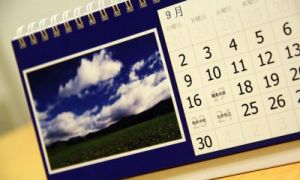Self-care is essential for early childhood educators in Australia, as their work can be emotionally and physically demanding. Prioritizing well-being helps prevent burnout and enhances the quality of care provided to children. The following article provides information on Practical Self-Care Tips, Self-Care Activities, Self Care Routines, Self Care During Lunch Breaks, Self Care During Different Stress Levels and more.
Practical Self-Care Tips
-
Mindfulness & Relaxation: Practices like meditation, deep breathing, and visualization exercises can reduce stress.
-
Routine & Boundaries: Establishing clear work-life boundaries prevents exhaustion and promotes balance.
-
Physical Well-being: Regular movement, hydration, and nutritious meals support overall health.
-
Professional Support: Seeking peer support, mentorship, or professional development opportunities fosters resilience.
Self - Care Activities
Mindfulness & Stress Management
-
Guided Meditation: Short mindfulness exercises to reduce stress.
-
Deep Breathing Techniques: Helps regulate emotions and maintain calm.
-
Journaling: Writing reflections on positive moments in the classroom.
Physical Well-being
-
Stretching & Yoga: Simple movements to relieve tension.
-
Hydration & Nutrition: Prioritizing balanced meals and water intake.
-
Outdoor Walks: Spending time in nature to refresh the mind.
Work-Life Balance
-
Setting Boundaries: Avoiding work-related tasks outside of work hours.
-
Social Connections: Engaging with colleagues for support and camaraderie.
-
Creative Hobbies: Painting, music, or gardening to unwind.
Self Care Routines
Daily Self-Care Practices
-
Mindful Mornings: Start the day with deep breathing or a short meditation.
-
Hydration & Nutrition: Prioritize balanced meals and water intake.
-
Movement Breaks: Stretch or take short walks between tasks.
Work-Life Balance Strategies
-
Setting Boundaries: Avoid work-related tasks outside of work hours.
-
Social Connections: Engage with colleagues for support and camaraderie.
-
Creative Hobbies: Painting, music, or gardening to unwind.
Stress Management Techniques
-
Guided Meditation: Short mindfulness exercises to reduce stress.
-
Journaling: Writing reflections on positive moments in the classroom.
-
Outdoor Walks: Spending time in nature to refresh the mind.
Self Care During Lunch Breaks
Taking time for self-care during your lunch break can help educators recharge and maintain well-being throughout the day. Here are some simple yet effective activities:
Mindfulness & Relaxation
-
Deep Breathing Exercises: A few minutes of mindful breathing can reduce stress.
-
Guided Meditation: Listen to a short meditation or calming music.
-
Journaling: Write down positive moments from the day.
Physical Well-being
-
Stretching & Movement: Light stretching or a short walk can boost energy.
-
Hydration & Nutrition: Enjoy a balanced meal and drink plenty of water.
-
Outdoor Break: Step outside for fresh air and sunlight.
Mental & Emotional Recharge
-
Disconnect from Screens: Avoid emails and social media for a mental reset.
-
Read a Book or Listen to a Podcast: Engage in something uplifting.
-
Social Connection: Chat with a colleague or call a loved one.
Self Care During Different Stress Levels
Here are self-care routines tailored to different stress levels for educators during their lunch break:
Low Stress (Preventative Self-Care)
-
Mindful Eating: Focus on the taste and texture of your food to stay present.
-
Stretching & Movement: Light stretching or a short walk to refresh your body.
-
Social Connection: Chat with a colleague or call a loved one for a quick mood boost.
Moderate Stress (Recharging & Resetting)
-
Deep Breathing Exercises: Try the 4-7-8 method to calm your nervous system.
-
Guided Meditation: Listen to a short mindfulness session or calming music.
-
Journaling: Write down positive moments from the day to shift your mindset.
High Stress (Immediate Relief & Grounding)
-
Sensory Reset: Hold a warm drink, splash cold water on your face, or use aromatherapy.
-
Disconnect from Screens: Avoid emails and social media for a mental reset.
-
Grounding Techniques: Focus on five things you see, four things you touch, three things you hear, two things you smell, and one thing you taste.
Self Care For Educators With Busy Schedules
Here are some self-care strategies tailored for educators with busy schedules:
Quick & Effective Self-Care Strategies
-
Micro-Meditations: Take 60 seconds to focus on deep breathing.
-
Stretching at Your Desk: Simple movements to relieve tension.
-
Hydration & Nutrition: Keep a water bottle and healthy snacks nearby.
Work-Life Balance Techniques
-
Set Boundaries: Avoid checking emails outside work hours.
-
Delegate Tasks: Share responsibilities to reduce workload.
-
Unplug from Screens: Take short breaks from digital devices.
Stress Management for Busy Educators
-
Journaling: Write down one positive moment each day.
-
Music Therapy: Listen to calming music during breaks.
-
Outdoor Walks: A few minutes outside can refresh your mind.
Further Reading
Supporting Mental Health Of Children, Families and Educators
Free Educator Wellbeing Posters







 As an Educator in Australia, your pay rate falls under the Children’s Services Award 2010. This award states the minimum amount that an employer can
As an Educator in Australia, your pay rate falls under the Children’s Services Award 2010. This award states the minimum amount that an employer can When working as a qualified Early Childhood Teacher (with a university degree) within a service, your rate of pay will come from the Educational Services
When working as a qualified Early Childhood Teacher (with a university degree) within a service, your rate of pay will come from the Educational Services When working as a Diploma Qualified Educator your pay rate is from the Children's Services Award 2010. This Award states your minimum rate of pay
When working as a Diploma Qualified Educator your pay rate is from the Children's Services Award 2010. This Award states your minimum rate of pay When working as a Cert 3 Qualified Educator, your pay rate is from the Children's Services Award 2010. This Award states your minimum rate of
When working as a Cert 3 Qualified Educator, your pay rate is from the Children's Services Award 2010. This Award states your minimum rate of Educational Leaders play a crucial role in their early childhood service by ensuring that the educational program aligns with best practices and supports the holistic
Educational Leaders play a crucial role in their early childhood service by ensuring that the educational program aligns with best practices and supports the holistic In early childhood education and care, ratios are more than a technicality—they are a frontline safeguard. Every child deserves responsive supervision, emotional connection, and developmental
In early childhood education and care, ratios are more than a technicality—they are a frontline safeguard. Every child deserves responsive supervision, emotional connection, and developmental With the new national child safety reforms kicking in on 1 September 2025, early childhood services like yours have a real opportunity to lead the
With the new national child safety reforms kicking in on 1 September 2025, early childhood services like yours have a real opportunity to lead the Here’s a comprehensive Mobile Phone and Smart Watch Policy tailored for early childhood education and care (ECEC) services in Australia, aligned with the latest 2025
Here’s a comprehensive Mobile Phone and Smart Watch Policy tailored for early childhood education and care (ECEC) services in Australia, aligned with the latest 2025 The Sea of Fish Challenge is a national initiative that invites children, educators, families, and communities to create and display fish artworks as a symbol
The Sea of Fish Challenge is a national initiative that invites children, educators, families, and communities to create and display fish artworks as a symbol Across the early childhood education and care sector, educators are sounding the alarm: current staffing ratios are insufficient to deliver safe, meaningful, and developmentally appropriate
Across the early childhood education and care sector, educators are sounding the alarm: current staffing ratios are insufficient to deliver safe, meaningful, and developmentally appropriate


